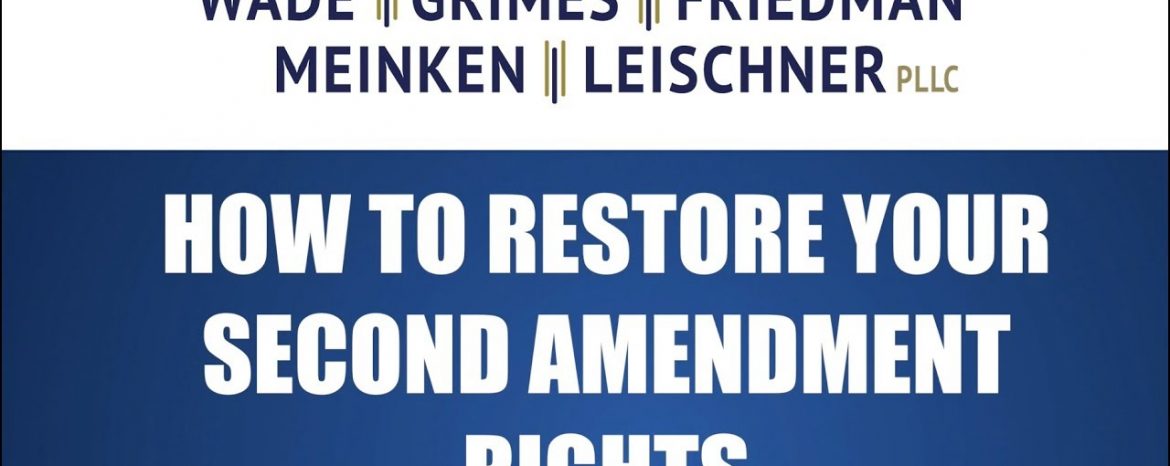Many Americans value and take pride in their Second Amendment rights. So it’s not surprising that many individuals who lose their gun rights due to a past conviction want to get them restored. On this week’s FAQ Friday, partners at Friedman, Grimes, Meinken & Leischner PLLC weigh in on how to restore your Second Amendment rights.
Restoring Your Civil Rights
The first step is to restore your civil rights. That includes your right to vote, hold public office, and serve on a jury. In order to restore your civil rights, you must file an application with the Governor’s office. Once that application is approved, you can then file a petition for restoration of gun rights with your local Circuit Court. The Circuit Court then has the discretion to either restore your gun rights or deny the petition.
The Circuit Court’s decision is fact specific, based on the conviction for which the gun rights were lost as well as your track record after the conviction. The most important thing to show, is that you are not a danger to the public.
What will impact the Circuit Court’s decision to restore my Second Amendment rights?
The likelihood that your gun rights will be restored depends largely on the nature of the underlying conviction and your track record since the charge. Let’s say you were convicted of a nonviolent crime 10-20 years ago, have not had any run-ins with the law since, and are currently an employed, law-abiding citizen. Your chances of having your gun rights restored are high. However, if the initial crime you were convicted of involved a firearm, it will be much harder to get your gun rights restored — even if you’ve had an excellent track record after the fact.
It’s crucial to present the human side of your story to the court. Whether you own a firearm or service weapon that’s a family heirloom, or if hunting is a big family tradition, it’s important for the court to know why you’re filing the petition.
Related Content:

